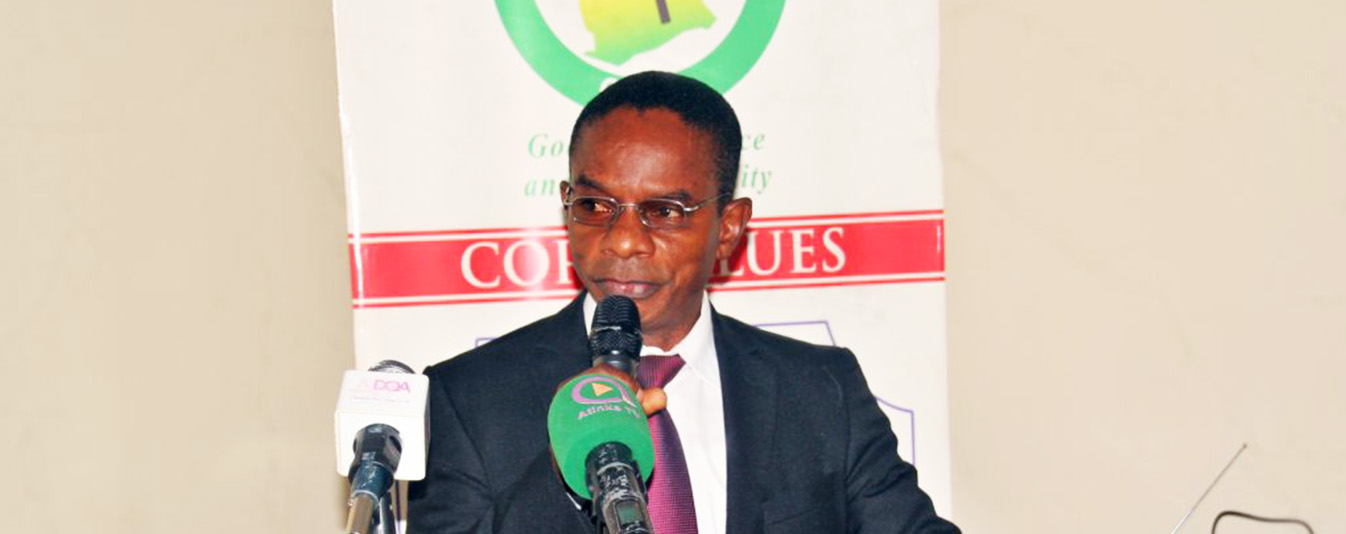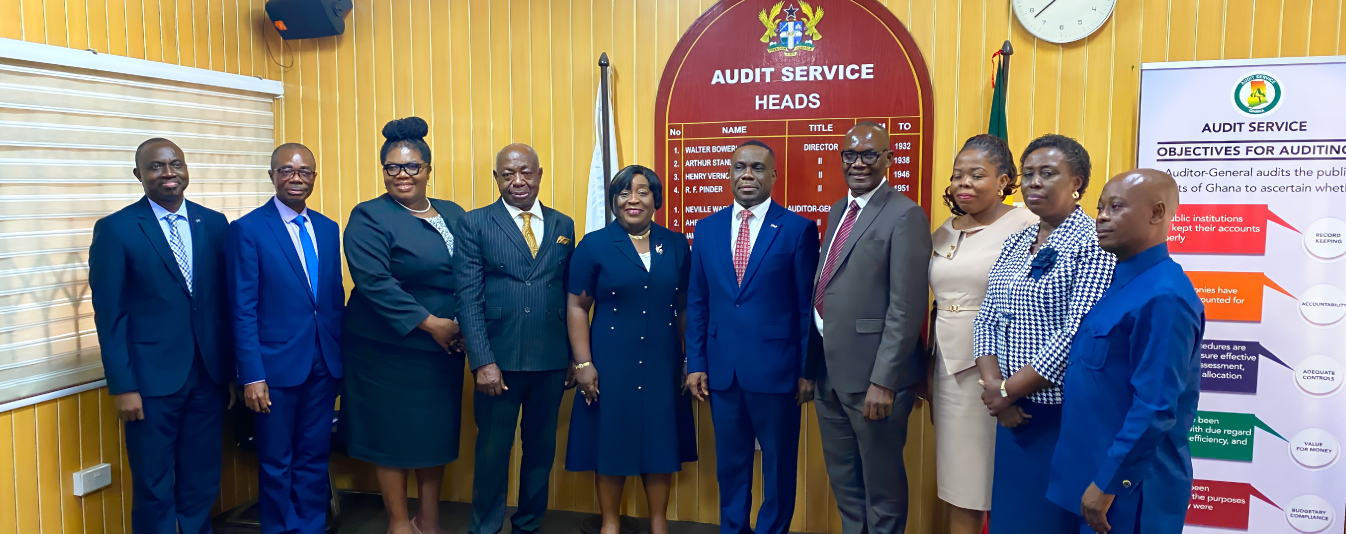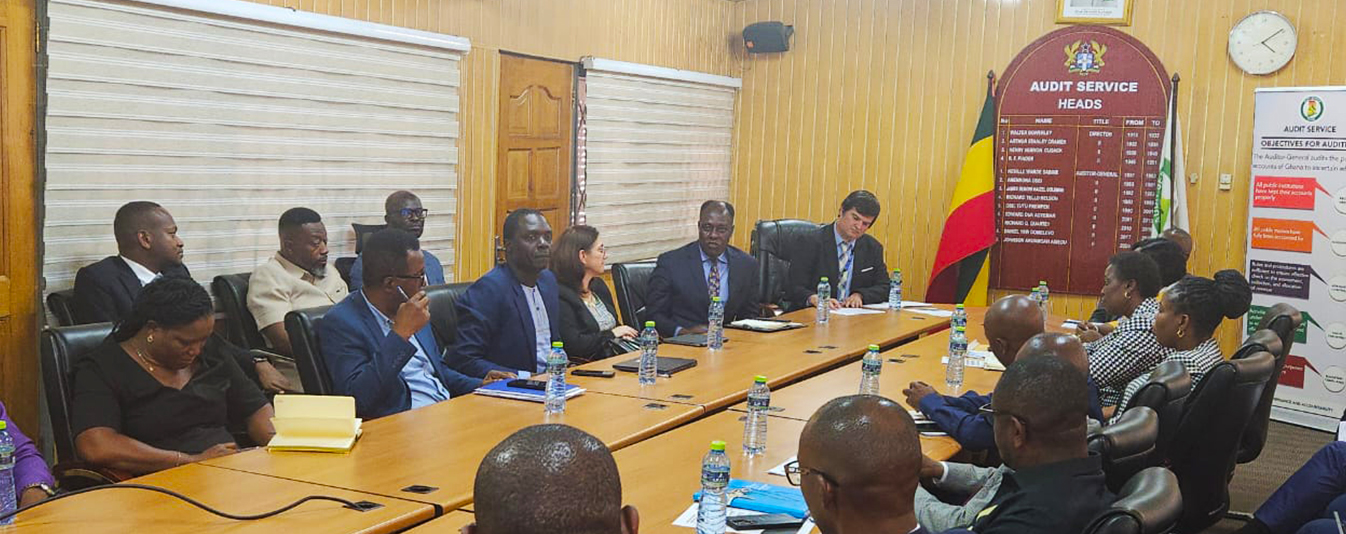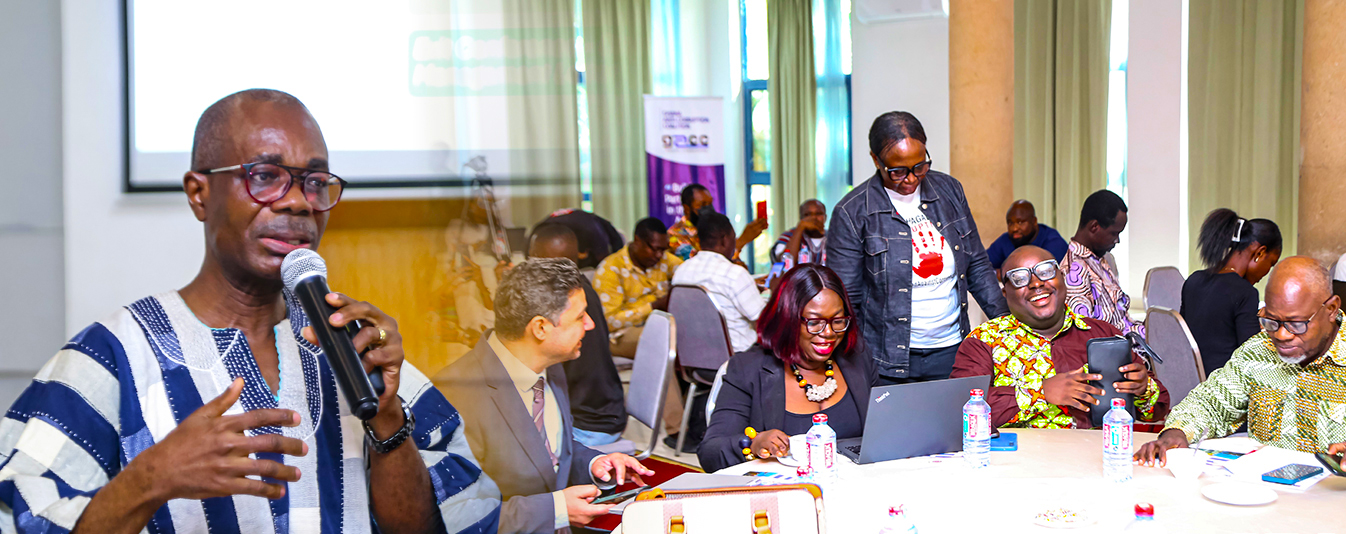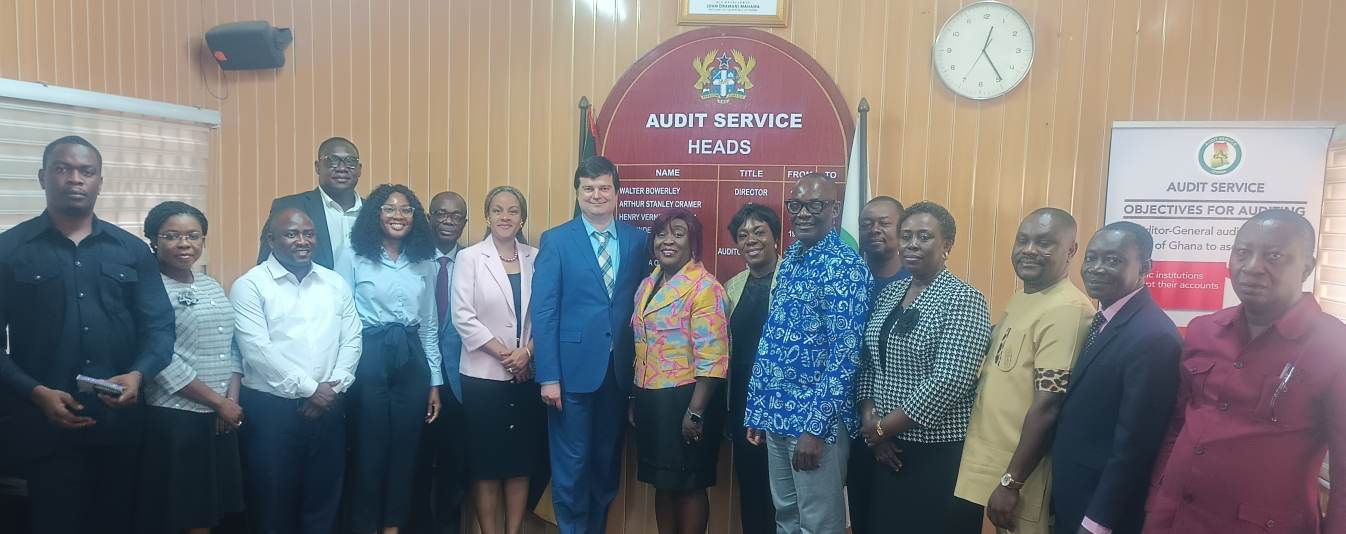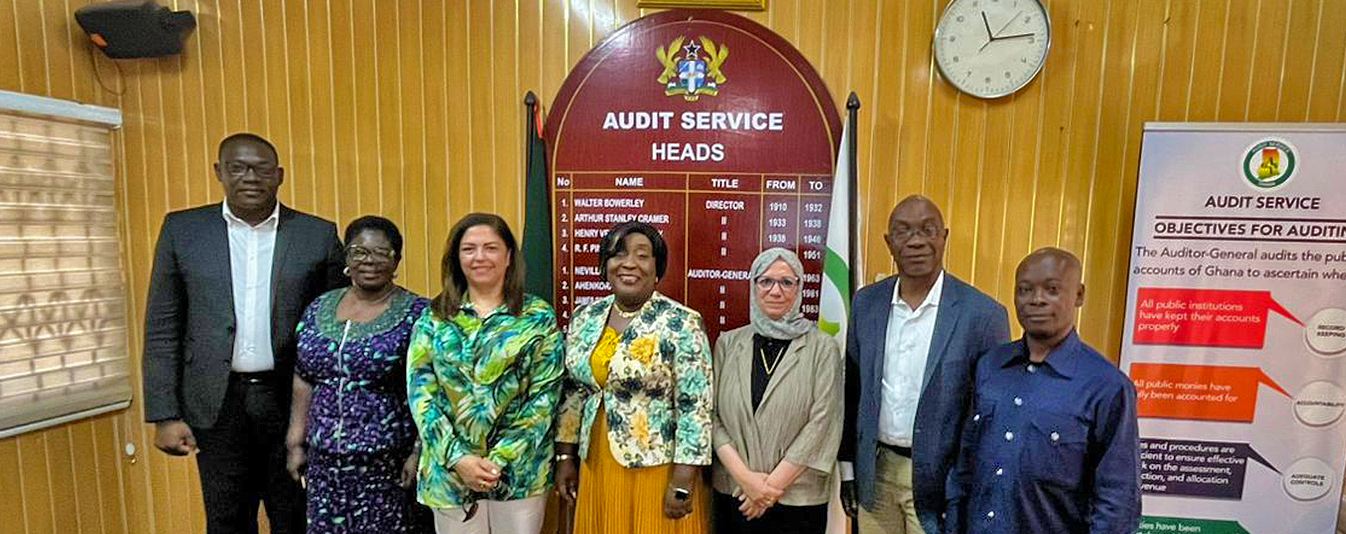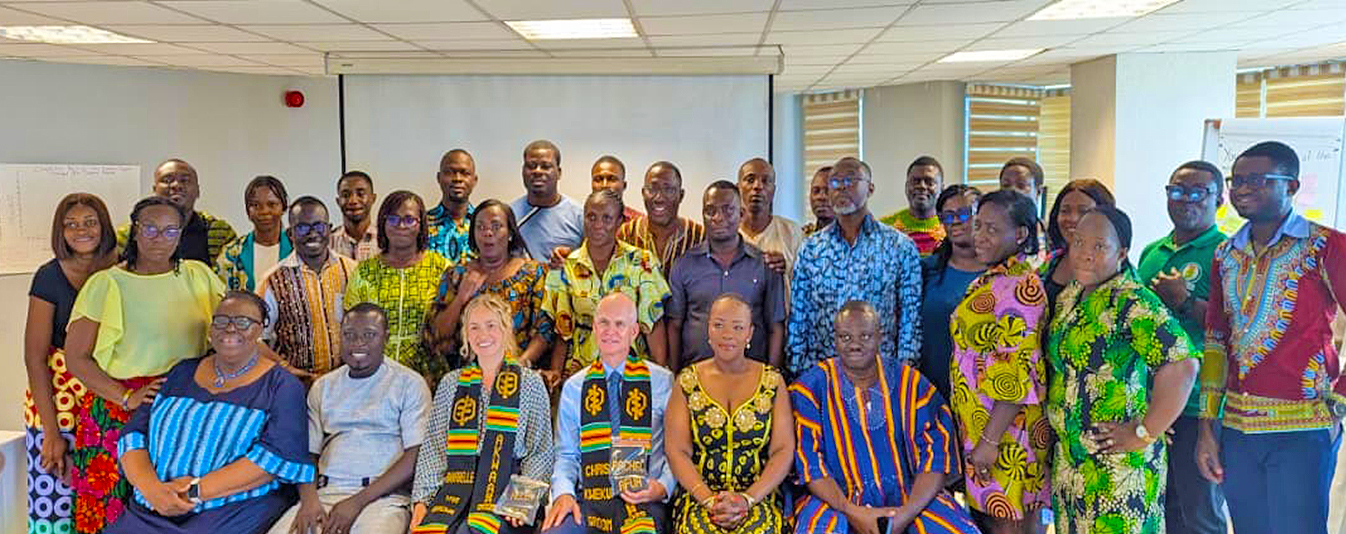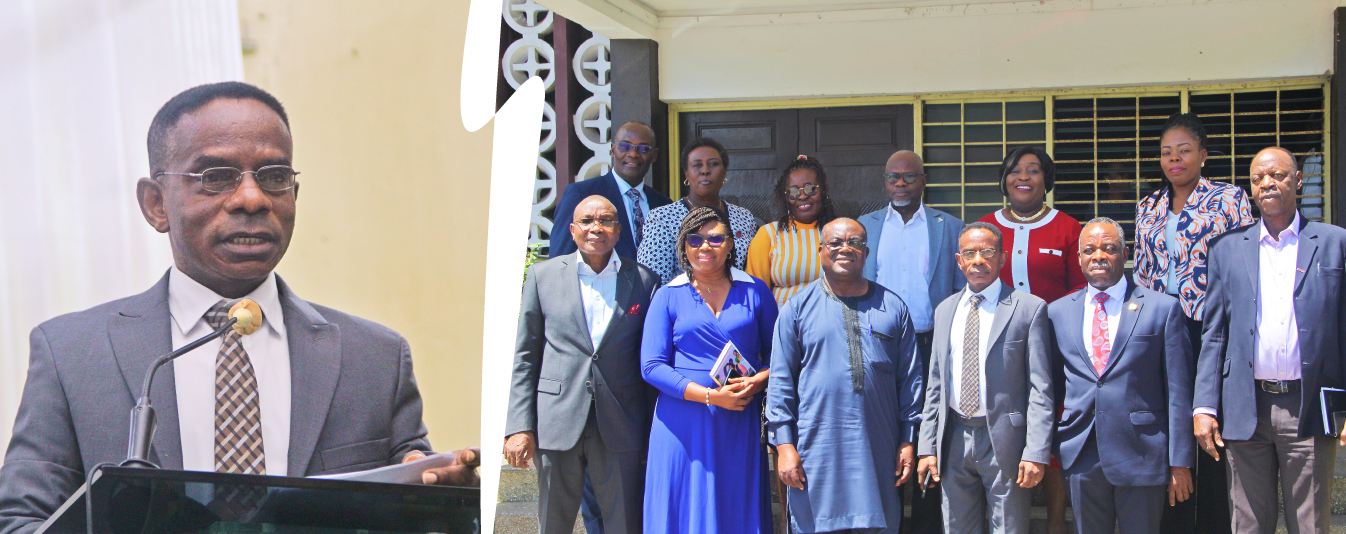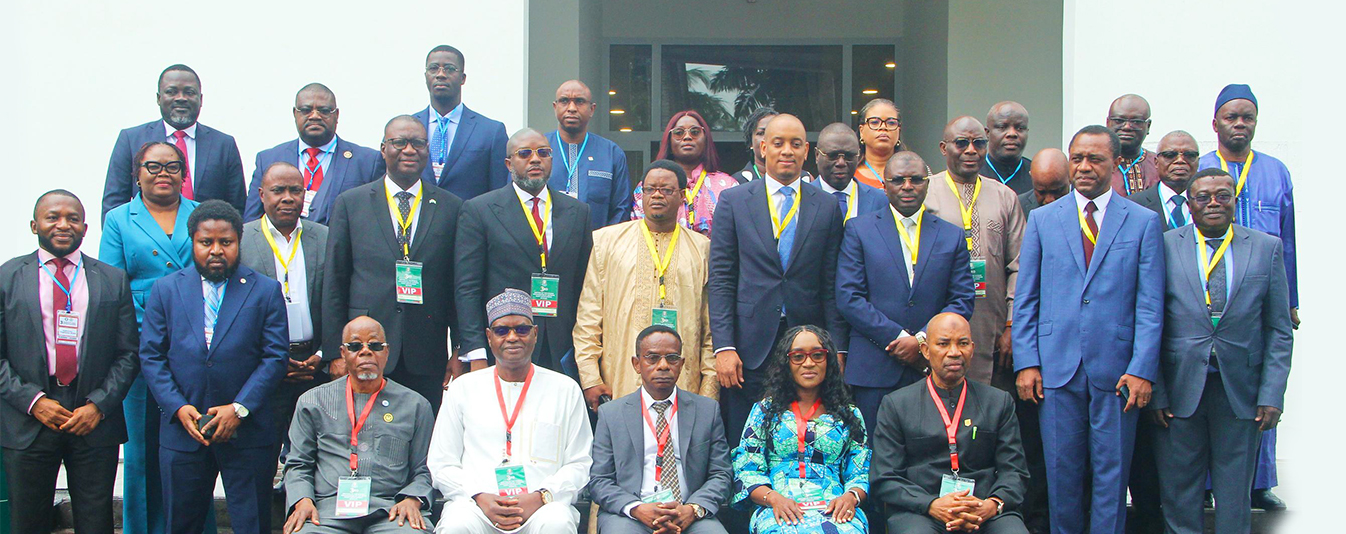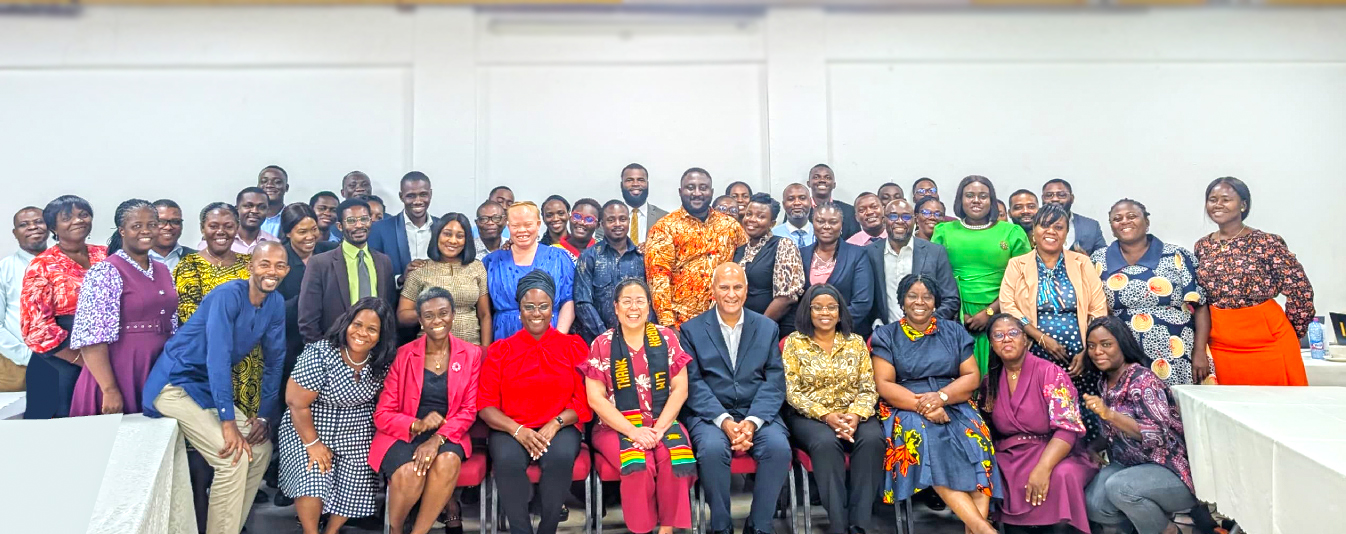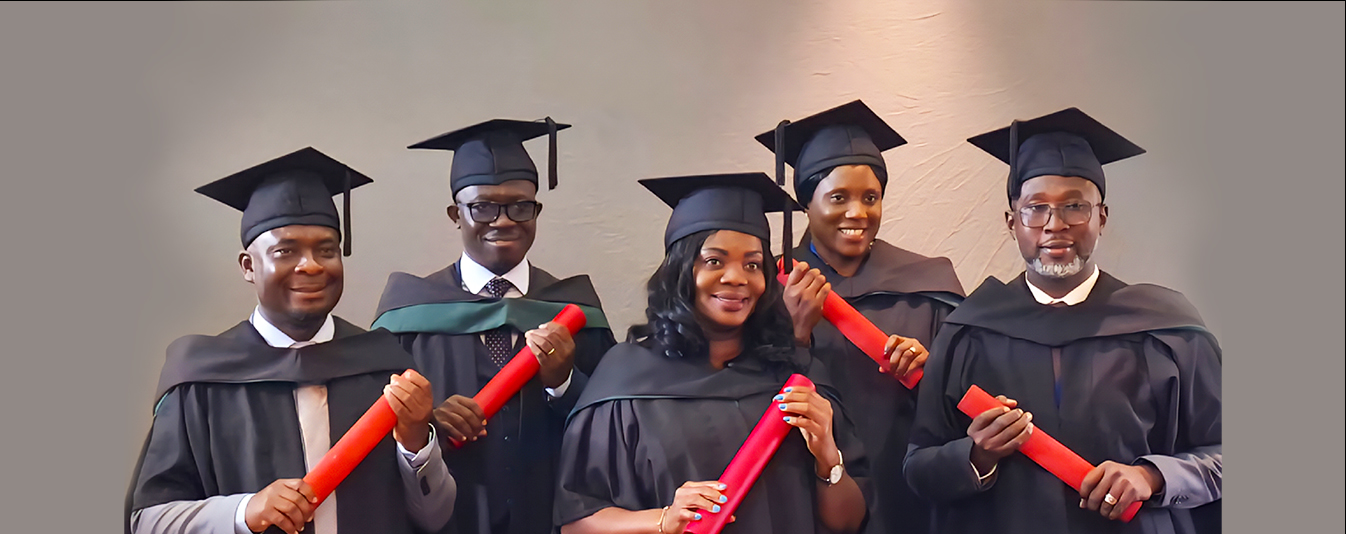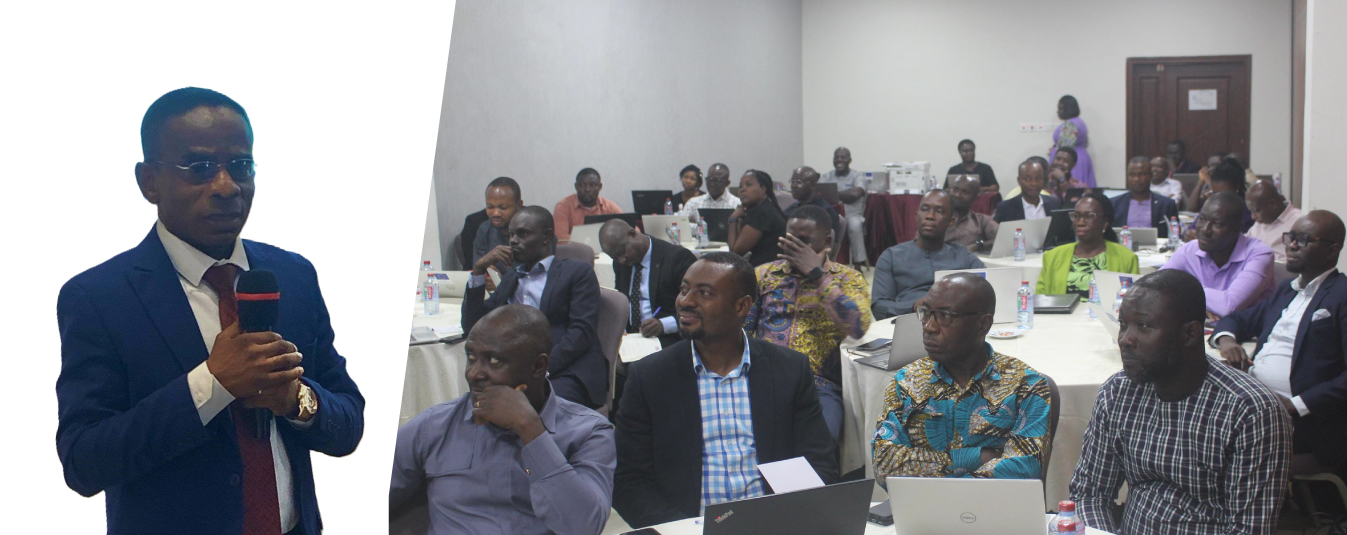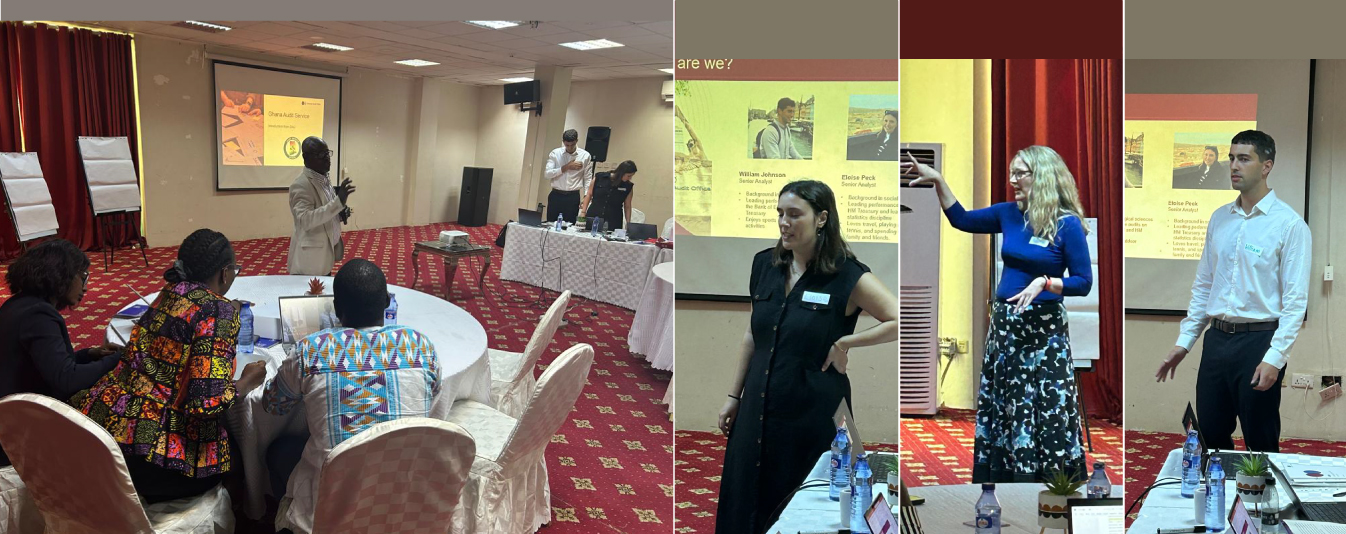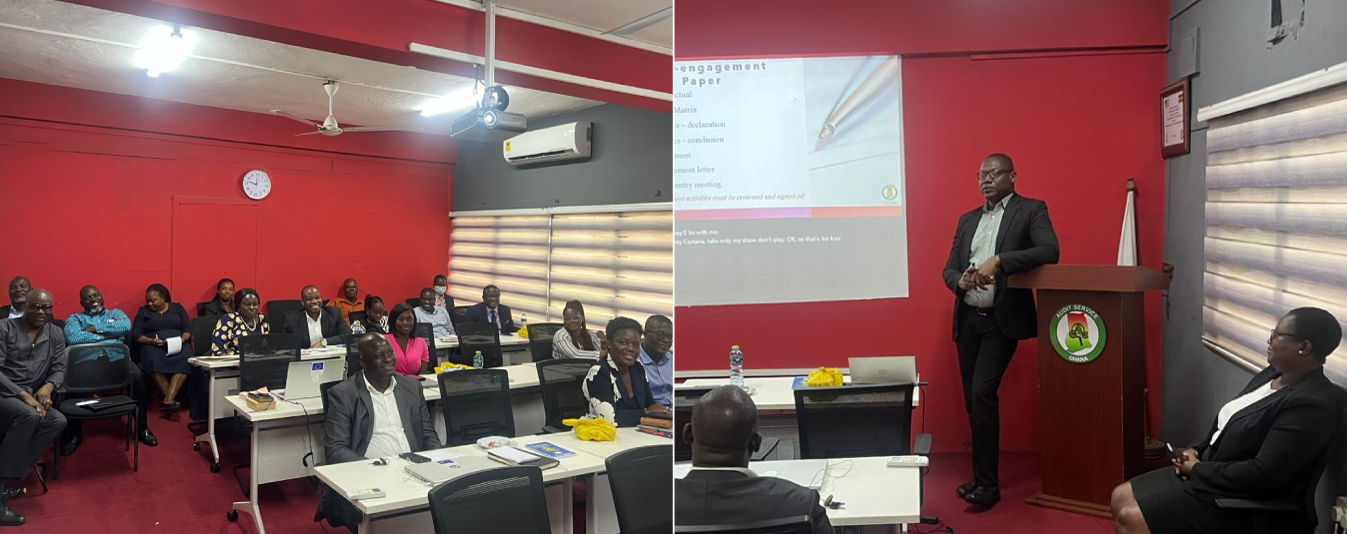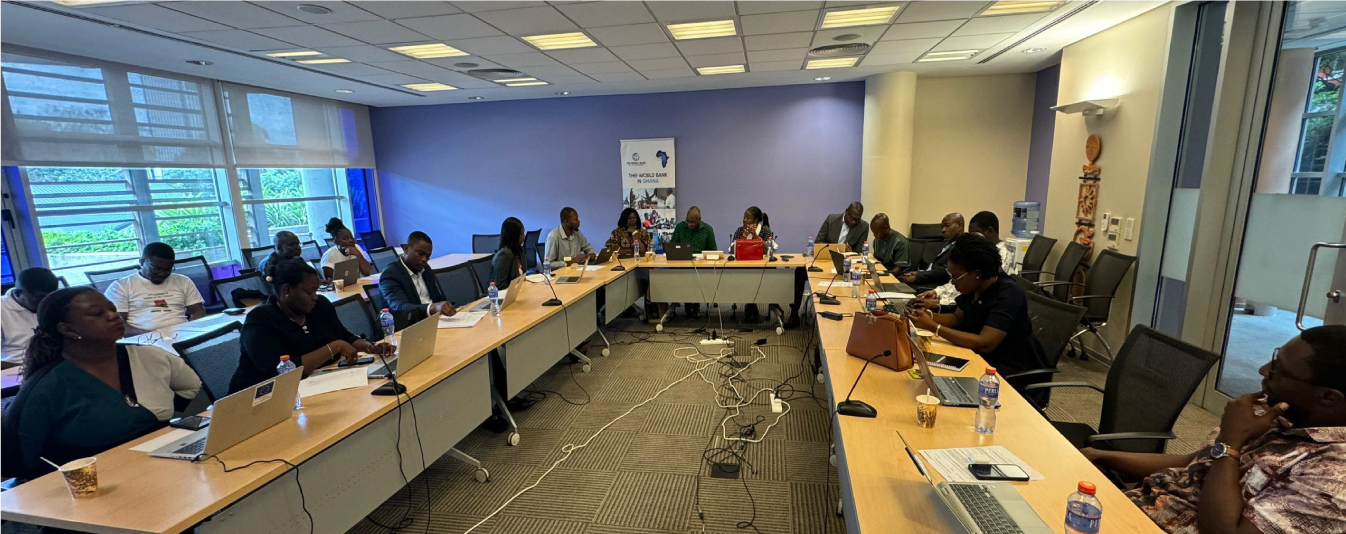The Audit Service has held a media seminar for News Editors in Accra under the theme “Achieving Greater Audit Impact through Education and Stakeholder Collaboration”. The objective of this collaboration is to reach out to citizens through the media and measure the impact of audit reports.
Speaking on behalf of the Auditor-General (A-G), the Deputy Auditor-General (DAG) in charge of Commercial Audits, Mr. Johnson Asiedu Akuamoah underscored the mandate of the A-G. He said the Auditor-General’s work is well defined in the 1992 Constitution and include approving forms in which public accounts shall be kept; auditing all public accounts of the State; auditing foreign exchange transactions; and carrying out special audits or reviews in the public interest. He noted that the objective for the audit is to among others ensure that public institutions keep their accounts properly; public institutions fully account for monies received for the year under review; existing rules and procedures are sufficient to ensure an effective check on the assessment, collection and proper allocation of the revenue the institutions generate or disburse.
Mr. Akuamoah disclosed that the Auditor-General, through his reports to Parliament provides the most accurate and reliable update to citizens on how public institutions use resources. He noted that such independent examination of public accounts is helping to reduce corruption and exposing wrong doers within the public financial management system.
Speaking on the topic “The Audit Process and the Role of Parliament in the Audit Function”, an Assistant Auditor-General, Mr. J.B. Odame-Agyekum, said that an audit report is not written only by the Auditor-General but with the involvement of audited institutions. In describing the audit process, he said the audited institutions are given the opportunity to respond to observations on infractions during the audit. The audit teams then discuss draft management letters with Management of audited institutions at exit conferences. The audited entities are required to respond to signed management letters within 30 days. All outstanding issues after the 30 days are compiled as notes for the Auditor-General’s reports which are submitted to Parliament.
Mr. Odame-Agyekum enumerated the reports produced by the A-G which includes Management and Utilisation of the District Assemblies Common Fund (DACF), Pre-university Educational Institutions and the Bank of Ghana (BoG) Foreign Receipts and Payments. He added that irregularities that the A-G’s reports on are grouped under seven broad categories namely cash-, contract-, tax-, stores and procurement-, outstanding loans and debts-, rent payments- and payroll- irregularities. When the reports are submitted to Parliament, he stated that the Speaker refers them to the Public Accounts Committee (PAC) which invites audited entities and persons cited in the report for a public hearing. Before the public hearing however, the Audit Service briefs the PAC on the reports.
A media practitioner, Mr Sampson Lardy Anyenini, who spoke on the topic, ‘The Media as a Catalyst for Promoting Audit Report Implementation and Exposing Wrong-doings in the Public Space to Achieve Greater Audit Impact’, said that the media should be in a symbiotic relationship with the Audit Service. He added that if the media uses the tools of journalism conscientiously, they will be able to expose and combat corruption as mandated in the Constitution. He appealed to Editors, Producers of Programmes and Journalists in general to be abreast with the Auditor-General’s reports and read beyond the executive summary as well as engage the Audit Service to gain insights into the reports.
Mr. Anyenini said that Journalists need to follow the audit committees of the various Ministries, Departments and Agencies (MDAs) as well as Municipal, Metropolitan and District Assemblies (MMDAs) to ascertain the level of implementation of audit recommendations. The Media should give prime time opportunity to discuss the content of the A-G’s reports. He stressed that if media houses will do the above, they will have good content to rely on all year round and can hold on to a great viewing and listening audience. He stated that journalism that does not lead to improving society is worthless.
Present at the seminar were the Acting Auditor-General, Mrs. Roberta Assiamah-Appiah, the Deputy Auditor-General in charge of Performance and Special Audits Department, Mr. Benjamin Codjoe and various Branch and Unit Heads.

